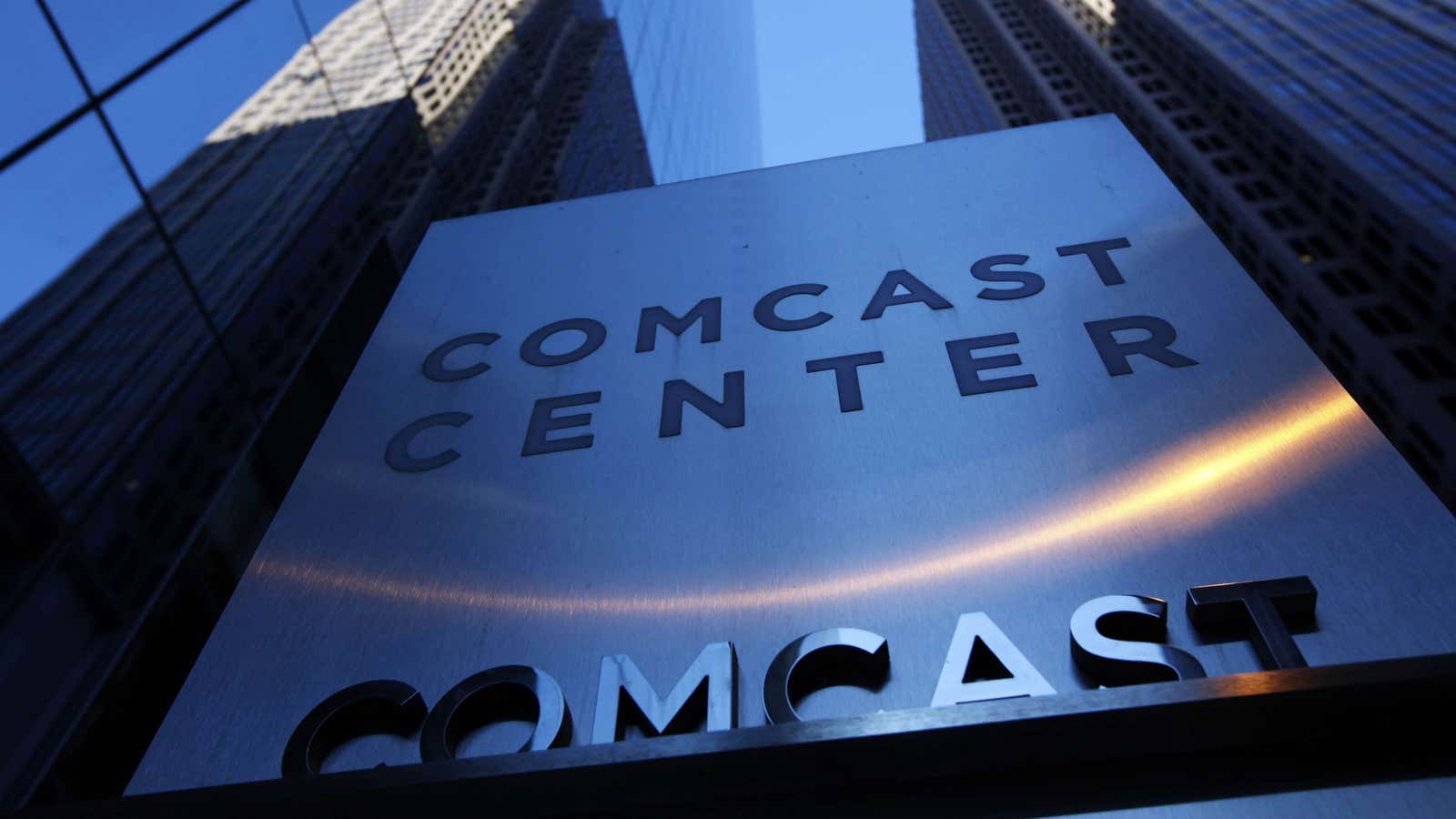Last week the US Federal Communications formally adopted stricter “net neutrality” rules that essentially will regulate the internet in the country like a public utility. (Here is a good, plain English explainer on what that actually means).
Of course, this ruling could (and probably will) be challenged in the courts by the big broadband companies. But many internet advocates and stock investors are already shifting their focus to looming consolidation in America’s communications markets that could change the way Americans access the internet and consume video.
At least two major corporate transactions that had been in limbo while the net neutrality vote was up in the air, will now need FCC approval. And more could be coming.
Comcast-Time Warner Cable
This gigantic and politically contentious deal would combine America’s two largest cable companies. The FCC has an informal 180 day window (“shot clock”) to decide on transactions that in this case will expire at the end of March. Some people think that the approval of net neutrality will actually make it easier for the FCC to wave this one through. Macquarie Securities analyst Amy Yong told clients this morning that she thinks the merger ”will likely be approved by end of March / early April with company-specific conditions” which “could set the groundwork for future deals”.
Opponents, which include Netflix, Senator Al Franken, and John Oliver, remain fearful. One vociferous group, the Stop Mega Comcast Coalition, said in a press release that even with net neutrality, the deal would still harm competition, consumers, and the public interest. “No regulation, including net neutrality, can make up for this loss of competitive options.”
AT&T-DirecTV
The proposed deal between AT&T, the telecom giant and, DirecTV, a satellite TV operator, is bigger but far less contentious than Comcast-Time Warner and not really affected by the ruling. The FCC’s review of this deal is expected to also conclude by the end of month.”We continue to believe the transaction will close with minimal concessions” Jefferies analyst Mike McCormick said last month. AT&T is pondering whether to rebrand (paywall) the satellite pay TV company under its own name.
What about T-Mobile?
T-Mobile has long been considered a prime acquisition target. But after a remarkable turnaround over the past year, it is now one of the jewels (paywall) in its parent company, Deutsche Telekom’s portfolio, which may no longer want to sell it.
Rival carrier Sprint and its Japanese owner Softbank made no secret of their desire to acquire the business last year. They were forced to walk away when regulators signaled they would never sanction a deal that reduces the number of wireless carriers from the current four players. The net neutrality ruling doesn’t really change that.
Speculation has since shifted to a potential deal between T-Mobile and satellite operator Dish Network (which recently launched an internet TV service, Sling TV). T-Mobile CEO John Legere actually made some comments about this at his parent’s investor day last week. ““It’s a conversation that our shareholders should have, but importantly from a position of strength,” he said. “Dish and [T-Mobile], that makes some sense.”
